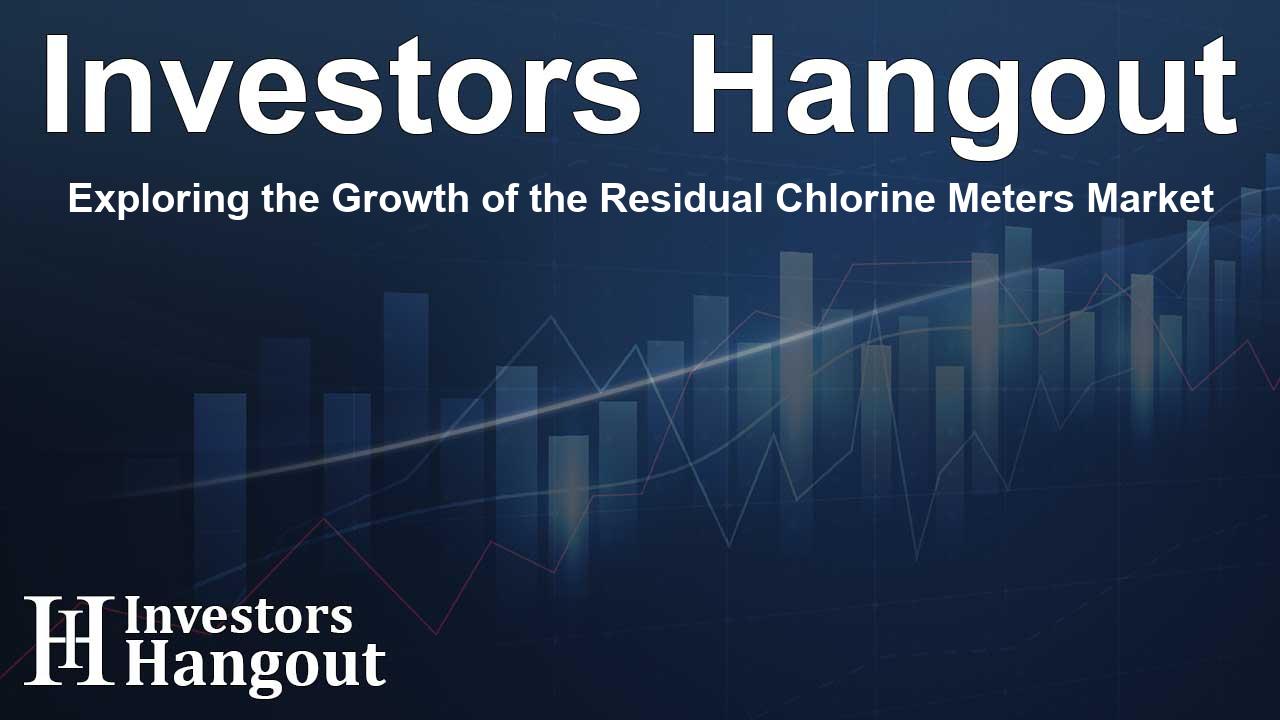Exploring the Growth of the Residual Chlorine Meters Market

Overview of the Residual Chlorine Meters Market
The global residual chlorine meters market is on a promising trajectory, currently valued at US$ 381.70 million and expected to reach a remarkable US$ 615.66 million by 2033. This growth signals a compound annual growth rate (CAGR) of 5.3% during the forecast period. A major driving force behind this expansion is the municipal water treatment sector, which plays an essential role in ensuring public health and safety.
Municipal Water Treatment Initiatives
Government Investments and Infrastructure Upgrades
Countries worldwide are prioritizing investments in water infrastructure to enhance the efficiency and reliability of water services. A notable example is China's ambitious plan to elevate its sewage treatment capacity by an additional 12 million cubic meters daily by 2025. The government is also targeting the renovation of thousands of kilometers of sewage pipelines and the establishment of environmentally friendly treatment plants, indicating a significant demand for advanced monitoring technologies.
Innovative Projects Making Headlines
In India, Schneider Electric is spearheading an innovative project to automate the Bhandup Water Treatment Plant in Mumbai, which will enable it to process an astounding 4,500 million liters daily, serving over 22 million residents. Projects such as these exemplify the necessity for reliable residual chlorine meters to ensure water quality.
Key Trends Impacting the Residual Chlorine Meters Market
Regulatory Compliance and Public Awareness
Growing public consciousness regarding waterborne diseases has prompted stricter regulations mandating precise monitoring of water quality. Companies are now utilizing advanced sensor technologies to meet regulatory demands and enhance the accuracy of their monitoring systems.
The Rise of Smart Technology
There is a clear shift towards integrating smart technologies into water monitoring. Manufacturers are increasingly launching portable meters adapted for real-time data collection in the field, as well as advancing IoT solutions that facilitate remote monitoring and analysis. This trend streamlines operations and decreases the potential for human error.
Sector-Specific Market Drivers
Industrial Demand and Compliance
The industrial sector is rapidly expanding its use of residual chlorine meters to adhere to rigorous compliance standards. In China, a pilot AI-based wastewater treatment project in Chengdu showcased a substantial 30% reduction in chemical usage while increasing operational efficiency by 25%. The ongoing industrial activities are fuelling demand for efficient water quality monitoring solutions.
Emerging Applications in Aquaculture and Environmental Monitoring
Innovative applications in aquaculture are also shaping the future of the residual chlorine meters market. Projects like the real-time seawater monitoring system in Vietnam highlight the importance of maintaining optimal water quality in aquaculture efforts, which contribute significantly to the economy.
Global Players Shaping the Market Landscape
The competitive landscape of residual chlorine meters is influenced by key industry players who are navigating growth through strategic innovations. Companies like Xylem and Veolia are establishing strong positions through novel technologies and significant contract acquisitions, crucial for sustaining market relevance and leadership.
As industries continue to evolve, the demand for reliable and efficient water quality monitoring will undoubtedly grow, underscoring the importance of the residual chlorine meters market in global infrastructure.
Frequently Asked Questions
What is the projected market size for residual chlorine meters by 2033?
The residual chlorine meters market is projected to reach US$ 615.66 million by 2033.
What are the main drivers of growth in this market?
Main drivers include stringent government regulations, increasing public awareness of water safety, and technological advancements in sensor technology.
How is smart technology influencing the market?
Smart technology is enhancing data collection through IoT integration, leading to more accurate and efficient water quality monitoring.
What role do industrial sectors play in this market?
Industrial sectors are significant consumers of residual chlorine meters, driven by regulatory compliance and the need for efficient wastewater treatment solutions.
Are there emerging applications for residual chlorine meters?
Yes, emerging applications in aquaculture and environmental monitoring are expanding the market, showcasing its versatility across various industries.
About The Author
Contact Addison Perry privately here. Or send an email with ATTN: Addison Perry as the subject to contact@investorshangout.com.
About Investors Hangout
Investors Hangout is a leading online stock forum for financial discussion and learning, offering a wide range of free tools and resources. It draws in traders of all levels, who exchange market knowledge, investigate trading tactics, and keep an eye on industry developments in real time. Featuring financial articles, stock message boards, quotes, charts, company profiles, and live news updates. Through cooperative learning and a wealth of informational resources, it helps users from novices creating their first portfolios to experts honing their techniques. Join Investors Hangout today: https://investorshangout.com/
The content of this article is based on factual, publicly available information and does not represent legal, financial, or investment advice. Investors Hangout does not offer financial advice, and the author is not a licensed financial advisor. Consult a qualified advisor before making any financial or investment decisions based on this article. This article should not be considered advice to purchase, sell, or hold any securities or other investments. If any of the material provided here is inaccurate, please contact us for corrections.
